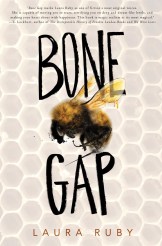In this English translation of a Swedish debut young adult novel, fifteen year old Steffi is an outcast at her high school. Karro, one of the ‘in’ girls, never passes up a chance to harass her, call her a whore, tell her she stinks and how ugly she is. All Steffi wants to do is play jazz.

One day, walking home from school, she hears old school jazz music coming out of the second floor window of a retirement home. It stops her in her tracks and she stares at the window, into the face of a white haired old man who asks if she’s going to stand there staring or is she going to come up. Steffi does the latter and is introduced to Alvar ‘Big Boy’ Swensson, a well known jazz bassist during the time of the second world war.
Author Lovestam is a jazz aficionado herself and has penned an interesting two part tale. In the first, Steffi confides in Alvar about the goings on at school, her love of jazz and her desire to go to a music school in Stockholm.
In the second tale, Alvar reminisces about his journey to stardom, from his humble beginnings in Varmland, taking the train alone to Stockholm at age seventeen and meeting a real clarinetist on the train, joining a band, courting the gorgeous Anita and achieving his fame. There is a touching romance in this novel as well as a pseudo history lesson about Swedish life during the Second World War.
Lovestam name drops the well known Swedish jazz musician Povel Ramel (who I never heard of) as well as several other musicians of the time. She is into the beat of Steffi’s bass guitar and illustrates how the music permeates every aspect of Steffi’s life. Jazz musicians will understand this better than I do.
Wonderful Feels Like This, a rewarding intergenerational tale, brings to mind Notes From the Midnight Driver by Jordan Sonnenblick,  in which the main character, Alex, forges a relationship with a nursing home patient, Sol, also a famous musician. While Lovestam’s novel is more serious and Sonnenblick’s has a touch of humor, the bonds forged between Steffi and Alvar and Alex and Sol form the bases of great stories.
in which the main character, Alex, forges a relationship with a nursing home patient, Sol, also a famous musician. While Lovestam’s novel is more serious and Sonnenblick’s has a touch of humor, the bonds forged between Steffi and Alvar and Alex and Sol form the bases of great stories.
While the cadence of the translation is a tad stilted until you get used to it, Wonderful Feels Like This is a fun read. But I wouldn’t limit myself to this book alone. I’d also highly recommend Notes From a Midnight Driver. You can’t go wrong with these two.




















